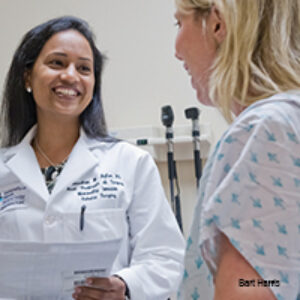Overview
Information adapted from Centers for Disease Control and Prevention on Oct. 1, 2018
Middle East Respiratory Syndrome (MERS) is an illness caused by a virus (more specifically, a coronavirus) called Middle East Respiratory Syndrome Coronavirus (MERS-CoV). Most MERS patients develop severe acute respiratory illness with symptoms of fever, cough and shortness of breath.
The disease was first identified in Saudi Arabia in September 2012. It has since spread to several other countries - with two cases identified in the U.S. in 2014. So far, all cases of MERS have been linked through travel to, or residence in, countries in and near the Arabian Peninsula.
MERS-CoV has spread from ill people to others through close contact, such as caring for or living with an infected person. MERS patients have ranged in age from younger than 1 to 99 years old.
Symptoms and Complications
Most people confirmed to have MERS-CoV infection have had severe acute respiratory illness with symptoms of:
- fever
- cough
- shortness of breath
Some people also have gastrointestinal symptoms including diarrhea and nausea/vomiting. For some people, these symptoms are mild (such as cold-like symptoms) or they have no symptoms at all. These people typically recover.
Some people with MERS experience more severe illness, especially those with these underlying health conditions:
- diabetes
- cancer
- chronic lung, heart, and kidney disease
- individuals with weakened immune systems
These people may experience complications such as pneumonia and kidney failure. Most of the people who die from MERS (about three to four out of every 10 patients reported) have an underlying medical condition. People with pre-existing medical conditions may also be more likely to become infected with MERS-CoV.
The incubation period for MERS (time between when a person is exposed to MERS-CoV and when they start to have symptoms) is usually about five or six days, but can range from two to 14 days.
Transmission
MERS-CoV, like other coronaviruses, is thought to spread from an infected person’s respiratory secretions, such as through coughing.
MERS-CoV has spread from ill people to others through close contact, such as caring for or living with an infected person. Infected people have spread MERS-CoV to others in healthcare settings, such as hospitals. Researchers studying MERS have not seen any ongoing spreading of MERS-CoV in the community.
All reported cases have been linked to countries in and near the Arabian Peninsula. Most infected people either lived in the Arabian Peninsula or recently traveled from the Arabian Peninsula before they became ill. A few people became infected with MERS-CoV after having close contact with an infected person who had recently traveled from the Arabian Peninsula. The largest known outbreak of MERS outside the Arabian Peninsula occurred in the Republic of Korea in 2015 and was associated with a traveler returning from the Arabian Peninsula.
Prevention and Treatment
Currently, there is no vaccine to prevent MERS-CoV infection. The U.S. National Institutes of Health is exploring the possibility of developing one.
Spokane Regional Health District advises people help protect themselves from respiratory illnesses by taking everyday preventive actions:
- Wash your hands often with soap and water for 20 seconds, and help young children do the same. If soap and water are not available, use an alcohol-based hand sanitizer.
- Cover your nose and mouth with a tissue when you cough or sneeze, then throw the tissue in the trash.
- Avoid touching your eyes, nose and mouth with unwashed hands.
- Avoid personal contact, such as kissing, or sharing cups or eating utensils, with sick people.
- Clean and disinfect frequently touched surfaces and objects, such as doorknobs.
There is no specific antiviral treatment recommended for MERS-CoV infection. Individuals with MERS often receive medical care to help relieve symptoms. For severe cases, current treatment includes care to support vital organ functions.
If you think you may have been exposed MERS-CoV, call your healthcare provider.

Communicable Disease Investigation & Prevention (CDIP)
Epidemiologists monitor, track, and respond to infectious disease in the community to prevent spread of illness.

